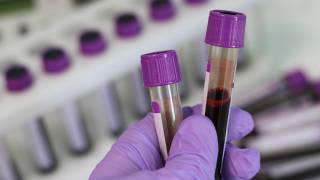Hepatitis B Immunity Among Women of Childbearing Age Decreased in 3 States

A new analysis of Hepatitis B virus (HBV) status among women of childbearing age found increasing infection rates in Mississippi, Kentucky, and West Virginia.
This study published on August 29, 2019, reported these 3 states had a declining prevalence of HBV seroprotection over the past few years, especially within the ‘birth-cohort.’
This is not good news, since a chronic hepatitis B infection can be treated and managed clinically, but cannot be cured.
In 2017, there were 1,727 death certificates among US residents that listed hepatitis B as the underlying or a contributing cause of death.
These trends in new HVB infections may be related to increased injection drug use and highlight potential gaps in HBV vaccine protection in certain states.
The good news from this analysis is the national rate of acute HBV infections was decreasing.
The prevalence of new chronic HBV diagnoses decreased significantly from (0.83%) to (0.19%) from 2011 to 2017.
On September 19, 2019, the Centers for Disease Control and Prevention (CDC) reported Hepatitis B often occurs as an acute infection that may or may not be identified or reported.
In 2016, there were 3,218 HBV cases reported to the CDC. After adjusting for under-ascertainment and under-reporting, the estimated number of new HBV infections in 2016 was actually 20,900.
And, 17 states notified the CDC of perinatal hepatitis B cases, up from 13, in 2016.
Hepatitis B is a vaccine-preventable disease and reported cases of acute hepatitis B declined from 1990–2014 after routine vaccination of children was recommended.
Chronic hepatitis B infections primarily occur (75%) among persons born outside the US in countries with intermediate or high rates of hepatitis B prevalence.
Excluding case reports with unknown or missing data, about 58 percent of chronic HBV infections were among Asian/Pacific Islanders.
Moreover, the CDC’s mortality data shows that disproportionate numbers of Asian/Pacific Islanders are dying with hepatitis B.
To address this serious issue, the CDC and the U.S. Preventive Services Task Force (USPSTF) recommend HBV testing for persons born in countries where HBV infection is endemic.
During August 2019, the USPSTF reaffirmed its previous conclusion that there is convincing evidence that screening for the HBV infection in pregnant women provides substantial benefit.
This USPSTF statement means ‘testing for the hepatitis B surface antigen (HBsAg) should be ordered at the 1st prenatal visit.’
Additionally, women with unknown HBsAg status or with new or continuing risk factors for a viral infection of the liver should be screened at the time of admission to a hospital or other delivery setting, says the USPSTF.
Furthermore, the USPSTF found adequate evidence that vaccination of all infants against HBV infection and providing postexposure prophylaxis with hepatitis B immune globulin (HBIG) at birth to infants of mothers infected with HBV substantially reduce the risk for acquisition of HBV infection in infants.
>> Private hepatitis screening at Ulta Labs <<
The CDC said on July 3, 2019, the ‘best way to prevent hepatitis B is by getting vaccinated. The hepatitis B vaccine is safe and effective. Completing the series of shots is needed for full protection.’
In the USA, there are 3 single-antigen vaccines and 2 combination HBV vaccines available:
- Single-antigen hepatitis B vaccines: ENGERIX-B, RECOMBIVAX HB, and HEPLISAV-B
- HBV combination vaccines include PEDIARIX and TWINRIX
To schedule a vaccination appointment at a local healthcare provider, please click here. And, vaccine financial support programs can be found at Vaccine Discounts.
Hepatitis B vaccine news
- Hepatitis B Infections Impact ‘Other’ Cancers Too
- Sci-B-Vac vs. Engerix-B in a Phase 3 Comparison
- Hepatitis B Vaccine HBAI20 Produced Enhanced Seroprotection For Non-Responders
- Free Screening Assessment for Hepatitis Testing Day
Additionally, the CDC is sharing this 5-minute online assessment which offers a personalized report on hepatitis testing and vaccination recommendations.
Hepatitis Vaccine information published by Precision Vaccinations
Our Trust Standards: Medical Advisory Committee

























